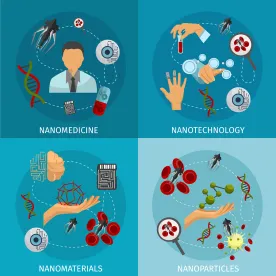The U.S. Environmental Protection Agency (EPA) promulgated on September 21, 2017, significant new use rules (SNUR) for 37 chemical substances that were the subject of premanufacture notices (PMN). Six of the chemical substances, including carbon nanotube (generic) and nanocarbon (generic), are subject to consent orders issued by EPA under Section 4 of the Toxic Substances Control Act. The SNURs require persons who intend to manufacture (defined by statute to include import) or process any of the 37 chemical substances for an activity that is designated as a significant new use to notify EPA at least 90 days before commencing that activity. The required notification initiates EPA’s evaluation of the intended use. Manufacture and processing for the significant new use is unable to commence until EPA has conducted a review of the notice, made an appropriate determination on the notice, and taken such actions as are required with that determination. The promulgated SNURs include:
-
Carbon nanotube (generic) (PMN Number P-15-672): The generic (non-confidential) use of the PMN substance will be in filtration media. EPA identified concerns for pulmonary toxicity and oncogenicity, as well as environmental toxicity. The consent order requires:
-
Use of personal protective equipment involving impervious gloves and protective clothing (where there is a potential for dermal exposure) and a National Institute for Occupational Safety and Health (NIOSH)-certified respirator with N-100, P-100, or R-100 cartridges (where there is a potential for inhalation exposure);
-
Processing and use of the PMN substance only for the use specified in the consent order;
-
Processing and use of the PMN substance only as an aqueous slurry, wet form, or a contained dry form as described in the PMN; and
-
No use of the PMN substance resulting in releases to surface waters and disposal of the PMN substance only by landfill or incineration.
-
Nanocarbon (generic) (PMN Number P-16-170): The substance will be used as an additive to composite materials. EPA identified concerns for pulmonary toxicity and oncogenicity, as well as environmental toxicity. The consent order requires:
-
Use of personal protective equipment involving impervious gloves and protective clothing (where there is a potential for dermal exposure) and a NIOSH-certified respirator with N-100, P-100, or R-100 cartridges (where there is a potential for inhalation exposure);
-
Submission of a dustiness test within six months of notice of commencement;
-
Submission of a 90-day chronic inhalation study prior to exceeding the confidential production volume limit specified in the consent order;
-
Processing and use of the PMN substance only for the use specified in the consent order, including no application method that generates a vapor, mist, or aerosol unless the application method occurs in an enclosed process; and
-
No use of the PMN substance resulting in releases to surface waters and disposal of the PMN substance only by landfill or incineration.
Both SNURs would designate as a “significant new use” the absence of the specified protective measures. The notice includes recommended testing for each substance. The SNURs will take effect November 20, 2017.




 />i
/>i

